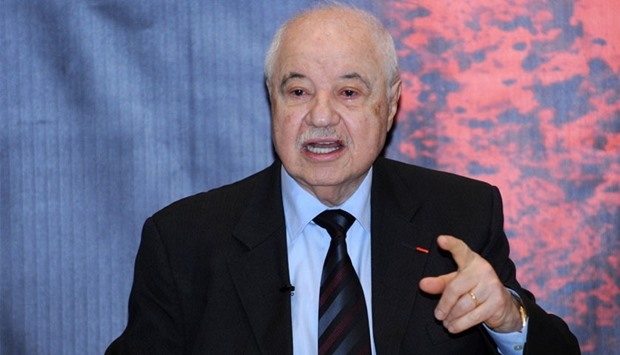Speaking to reporters at the Crowne Plaza yesterday, Dr Talal Abughazaleh, chairman and founder of Talal Abughazaleh Organisation, stressed that the fall in oil prices was not the result of supply and demand but rather “the result of political will and political mood.”
“Oil is not like any product because it is not recognised as a commodity under the World Trade Organisation (WTO) agreement, and it is not subject to the rules governing trade and products. It is considered as a strategic commodity by all major powers of the world.
“And because of its strategic importance, it is subject to political decisions…to argue that the slump in oil prices is all about supply and demand defies logic. I believe that there are factors such as political will and political decisions that affect the oil prices,” Abughazaleh explained.
According to Abughazaleh, the oil crisis is an opportunity for the Arab region to diversify from hydrocarbons and invest in the creation of “knowledge companies” by developing the education system.
“We know that oil producers have reserves, which can be used to cover the basic budget needs but aside from that I think what we need to do is decide on what must be done in the future. And what must be done in the future should be what Scandinavian countries have done, which is to become knowledge creators…the creation of wealth is out of the creation of knowledge.
“The Qatari leadership and its people are capable of transforming this country into a knowledge-based economy like Finland, which started the global knowledge industry…the worth of one invention is sometimes as much as the total GDP of an entire country. This is the time to think about it and work on it,” Abughazaleh emphasised.
He also encouraged oil producing countries “not to be upset” with the fall in oil prices: “We should not be upset if there is a fall in the production of oil in our countries, particularly the Arab oil producing countries because this is not a loss but rather a postponement of revenue.
“Because the oil that you do not produce now remains as an asset under the ground and in the future it could be sold at a better price so we should not be so pessimistic or gloomy about the fall in oil prices. We should not be disappointed.”
Citing gas, shale oil, and alternative renewable “clean” energy like solar, Abughazaleh said oil should be used as a raw material for production rather than as a source of energy.
“I also believe that oil should not be used as a source of energy. It should be used as a raw material for production. Its value will be much more if you use it to produce pharmaceuticals and other products like plastic.
“The return or the mark-up on oil is much more and much higher compared to its return as a source of energy. I would be very happy to see oil used more as a raw material rather than a source of energy,” he said.

